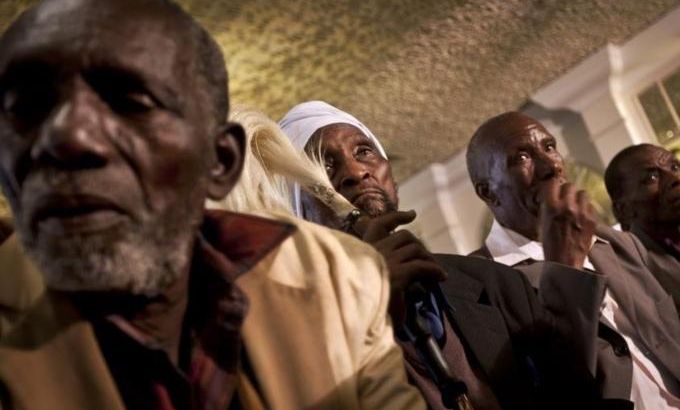
Righting historical wrongs?
We ask if modern Britain should be accountable for thousands of Kenyans who were abused during colonial rule.
The British government has agreed compensation for thousands of Kenyans, who they say suffered at the hands of their colonial rulers.
It's been a totally historic day for all the clients. They are absolutely delighted. In terms of justice being done, I think it has .... The clouds that have hung over our clients for all these years have at long last started to evaporate.
It is a case that has cast light on a dark chapter of Britain’s imperial past – accusations of rape and torture, castration, beatings and execution, during an uprising in Kenya in the 1950s.
The Kenyan Human Rights Commission says 90,000 Kenyans were executed, tortured or maimed, and 160,000 were detained in appalling conditions.
“The British government recognises that Kenyans were subject to torture and other forms of ill-treatment at the hands of the colonial administration. The British government sincerely regrets that these abuses took place and that they marred Kenya’s progress towards independence. Torture and ill-treatment are abhorrent violations of human dignity that we unreservedly condemn,” said Hague
The settlements follow a ruling by Britain’s high court in October that three Kenyans could pursue compensation claims against Britain.
I feel proud to be a citizen of a country which at last has acknowledged that these gross abuses were committed during its watch as a colonial power.
It was said that the sun never set on the British Empire. At the height of its power in the late 19th and early 20th centuries, the empire included a quarter of the earth’s land mass, and held sway over a fifth of the world’s population. It was a global superpower, comprised of territories, colonies and protectorates on every continent.
Even so, in light of this latest compensation case, the Kenya Human Rights Commission says it has had enquiries from India, Malaysia, Uganda and Zimbabwe about making claims against Britain.
But should history be put on trial? And is modern-day Britain to blame for the wrongs of the past?
To discuss this on Inside Story, presenter Hazem Sika is joined by guests: Martyn Day, a human rights lawyer representing the Mau Mau veterans; George Morara, programme officer at the Kenya Human Rights Commission, which took up the Mau Mau veterans’ case in 2003; and Edward Clay, a former British high commissioner to Kenya.
|
“It does bring a sense of closure …. The mau Mau history is one of the most disputed history in Kenya …. The simple fact that it took 40 years to lift the ban that was imposed on the Mau Mau, tells you a lot about their attitude; that the Kenyan official government had towards the whole Mau Mau case. We hope that the acknowledgement from the British government, that indeed, bad things happened then opens the way for the Kenyan government to also play its part.” – George Morara, programme officer at the Kenya Human Rights Commission, |